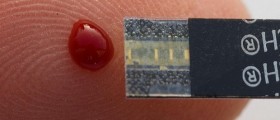Hypoglycemia is a medical condition characterized by state of the body provoked by lower than normal levels of blood glucose. The symptoms of hypoglycemia may vary, and they normally occur when the brain is not getting an adequate supply of glucose, needed for optimal functioning. Generally, hypoglycemia is a temporary health problem that manifests in dysphoria, which is a term used to describe general feeling of unwell. However, in some patients hypoglycemia may lead to seizures, unconsciousness and even permanent brain damage or death. Symptoms typically include shakiness, anxiety, nervousness, rapid and irregular heart beating, feeling of warmth and extreme sweating, pale skin, cold limbs and feeling of numbness in the parts of the body. Neurological symptoms may include negativism, rage, irritability, general emotional liability, weakness, apathy, lethargy, blurred vision, confusion, etc.
Causes of hypoglycemia
In most of the cases, hypoglycemia occurs in patients suffering from diabetes mellitus, who use insulin or oral medications treatment. However, it also affects otherwise healthy people and may occur at any age. Sometimes, hypoglycemia occurs as a result of certain metabolic disturbances, because of the excessive use of alcohol, in prolonged starvation, because hormone deficiencies and certain metabolic alterations due to the infections or toxins.
Prevention of hypoglycemia
Episodes of hypoglycemia are relatively easy to prevent but the exact recipe for successful prevention depends on the cause of the condition. In patients suffering from diabetes, hypoglycemia is prevented by carefully monitoring the blood sugar values and adjusting the dose of insulin or other medications, if needed. Patients should also pay special attention to blood sugar balance during unusual hours, physical activity, or alcohol intake.
If people suffer from some kind of metabolic disturbance that causes hypoglycemic episodes, a diet rich in carbohydrates may be the successful way of prevention. These people will also need to have regular meals separated by short fastening intervals. In most severe cases, patients may take a cornstarch supplement every couple of hours, to maintain the levels of blood sugar at their optimum.
Sometimes, the cause of all troubles is an overactive pancreas. In these cases, people may find the solution to their health problem by undergoing a surgery in which a part of the pancreas will be removed.
If hormonal disturbance causes episodes of hypoglycemia, doctors will administer an appropriate hormonal replacement therapy.
Hypoglycemia may also result from dumping syndrome and other post-surgical conditions. In these cases, it is effectively managed by dietary changes. Diet rich in fat, protein and carbohydrates successfully slows down digestion and lessens early insulin secretion.

















Your thoughts on this
Loading...